Fredy El Sakr
“Help!” I yelled out of our open apartment door.
I was seven years old, and my family had recently emigrated from Egypt to the US. We’d been feeling elated that week because, after months of interviews, my father had matched into a pediatric residency.
That morning he’d awakened feeling nauseated. My mother and sister went to buy some soothing food. I noticed that he’d vomited in the bathroom; now he was feeling worse.
He knew it was serious, because he put on his brown leather jacket and lay back in our blue recliner, waiting for my mom to return and take him to the emergency room. Now and then he’d look at me reassuringly with deep, dark, pain-stricken eyes, but he was clearly in agony. Then, as I watched, his eyes rolled back in his head.
A neighbor, hearing my yells for help, rushed over and called 911. The rest was a blur.
The emergency medical technicians raced in, surrounded my father and prepared to carry him out as I stood in the hallway, alone and terrified. I felt so helpless–all I could do was pray that he would live. I saw my mother and sister running towards us. My father must have been whisked away on a stretcher; I don’t fully remember. My mother rode with him in the ambulance. A while later, she returned alone. My father’s time on earth was over. He’d died of a heart attack.
That was my first code.
As my mother, sister and I sat huddled together, feeling our crushing loss, I vowed that I would become a physician. If ever I faced this type of situation again, I would have more to offer than a prayer.
Fifteen years later, as a third-year medical student, I experienced my second code. I was doing my pediatrics rotation, working in the emergency department. Suddenly, the overhead monitors blared: A new patient was arriving. My attending and I hurried to the entrance, where we saw an infant receiving cardiopulmonary resuscitation from the EMTs.
I stood at a safe distance until my attending said, “At our next pulse check, take over compressions.”
Numbly, I wrapped my hands around the child’s abdomen, my thumbs over his sternum, and began rhythmically squeezing. I remember the cracking of his ribs, the smell of his feces and the coolness of his skin.
Finally, amid the commotion, I heard my attending say, “That’s it, team–we’ll stop.”
I looked up, only to realize that the baby’s mother had been there all the while.
As her sobs subsided, she collapsed to the floor. Her baby was placed in her arms for the last time. Watching her cradle her child, I saw pure agony.
That was my second code.
Leaving the hospital that evening, I felt alone and crippled. I prayed for the ability to cope. I realized that I needed my faith to be more than an occasional crutch; I needed it to carry me through all circumstances.
Two years later, I began my intern year in internal medicine. That first week, deep into an overnight shift, the code-blue pager rang.
I took the job of monitoring the femoral pulse while my senior resident and team tried to revive the patient. But it was all for naught. Thirty minutes later, the code was called. We signed out to the morning team, ate breakfast pancakes, then headed home. Getting into bed that morning, I felt indifferent.
That was my third code.
This indifference to codes, and to most deaths in the hospital, persisted throughout that year. I tried to justify it by telling myself, My indifference is actually a strength–it keeps me from falling apart emotionally, so that I can care for my other patients. Over time, though, I often found myself praying, Lord, show me how to keep my human touch and care for others with love without crumbling from the constant despair.
As a second-year resident, I met Mr. Abbas. A Middle Eastern farmer, he’d been visiting the US when a ruptured aortic aneurysm had led to emergency surgery, followed by numerous complications and infections. He was now in his ninth month of hospitalization, struggling with heart failure, liver damage and chest wounds that would not heal. He was too sick to be flown home, and the outlook was bleak.
Mr. Abbas spoke only Arabic, and I was the first physician with whom he could communicate directly.
At first, I viewed his care purely as a clinical challenge–one that I felt eager to take on. This was an opportunity to sharpen my clinical skills, teach my interns and impress my attending physicians. Then, one night, I walked into his room to find him in tears.
He regarded me sadly with deep, dark, pain-stricken eyes that seemed so familiar.
“I have seven children, a wife and elderly parents at home, Doctor,” he told me. “I pray to see them again.”
My heart was wrenched with sadness for Mr. Abbas. The trip of a lifetime had turned into a slow, painful trudge towards inevitable death, alone and far from home.
Does he have sons? I wondered. If so, I could understand the despair and uncertainty they must be feeling. In that moment, I moved beyond simply observing Mr. Abbas’ suffering; now I was sharing in it with him.
I found myself making ways to spend time with him. I called his family in the Middle East to give updates and answer their questions. I came in early and left late every day, assessing and reassessing his care, and spent countless hours brainstorming with my hospital team about how to overcome the legal obstacles that kept his wife from traveling here to be with him, but it was all in vain.
Finally, two months after I’d met Mr. Abbas, and after many conversations with him about his wishes for end-of-life care, that care was withdrawn.
He passed away within a few moments. My clinical duties prevented me from being there, but I prayed for him: “Lord, give him peace in his final moments and give his family Your comfort.”
Nearly a year passed. One morning, I walked into the hospital, stopped by the cafeteria to buy the largest cup of coffee they sold and started toward the elevators up to the wards. Nearby, I saw a large group of Middle Easterners. They stared at my badge, and I smiled, but they didn’t smile back. I walked on. Then I felt a hand on my shoulder.
Turning, I saw an old man whose face looked familiar. He gazed at me, tears in his dark eyes.
The younger man standing next to him grabbed my hand.
“Do you remember Mr. Abbas?” he asked.
At the sound of that name, my heart skipped a beat.
“Of course,” I responded.
“This is his father,” said the man. “He has come to America to walk where his son spent his final months.”
Mr. Abbas’ father grabbed me and hugged me, and in that moment I offered up a prayer of thankfulness.
About the author:
Fredy El Sakr is a fellow in cardiovascular medicine at the University of Michigan, in Ann Arbor. “My outlook has changed drastically since the first code I witnessed. I’ve been blessed with a skill set that allows me to manage a code, and with family and friends who help me to deal with the stress that comes with the daily tragedies that I witness; however, my prayers and faith are what have ultimately carried me. I continue to pray as I approach and manage each code–and even as I do my utmost to help these critically ill patients survive, I believe that my greatest contribution is to pray for their peace and their families’ comfort. I wrote this piece in memory of my father and in honor of my mother.”
Story editor:
Diane Guernsey

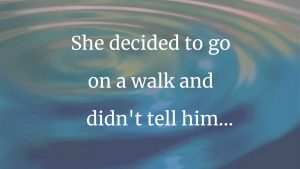

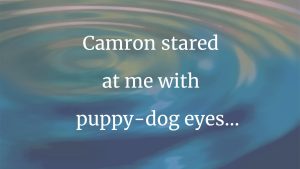
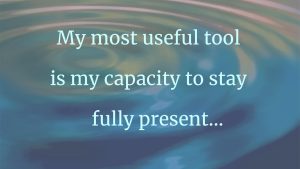
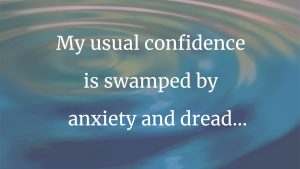
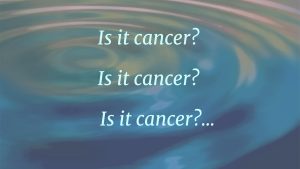
20 thoughts on “Heart and Soul”
Thank you for sharing, very profound and touching events
Blessings
Such a touching reflection. You are a gift to your patients and to all who strive to keep compassion and empathy as the context for our work.
This is a beautifully written and touching story that comes straight from the heart. Using both your medical knowledge and faith to help your patients and their families is a wonderful gift. Thank you for sharing your spirituality and humanity, so refreshing.
Fredy, as your mother I can not say or do anything except kneeling to God and thanking Him how He worked in your life and surrounded you to be your Heavenly Father. You are a true witness to this verse:
” And we know that for those who love God all things work together for good, for those who are called according to his purpose” Roman8:28.
I frequently took care of patients who had been on our critical care unit for months. Finding the right balance between professional objectivity and personal caring was always a challenge, one I often unsure of meeting. You got it right with Mr. Abbas; may you continue to find the optimal balance.
God bless you and keep you, Dr. El Sakr, and thank you for sharing your story.
How fortunate are your patients, having your humanity and spirit touching them, as your story has touched all of us who have read it.
And I offer a prayer of thanksgiving that you are a physician and a caring man who has the wisdom to put his own life experience to work.
Beautiful story, good to read of Dr. El Sakr’s witness of his faith.
Thank you for sharing this very well written and heart-wrenching story. I grew up in Ann Arbor, went to school and worked at the University of Michigan and spent a lot of time at the U of M Hospital. I hope all is going well with your work there. The patients and staff there are lucky to have you there. Good luck!
Powerful story.
Very moving piece. The Abbas’ are a beautiful family!
Thank you for sharing this personal and touching story.
I have walked in your shoes … shida halak ya ach
Dr El Sakr : Your story was so touching. God bless you as you show His love to those in need, and may it be an encouragement to us to do the same…..
.
Thank you, thank you, thank you. Painful and beautiful.
Tears in my eyes and on my cheeks. A beautiful story. Thank you Dr. Sakr, your do your father, your family and your patients and their families a great honor with your service.
A beautiful story that brought me to tears as I recognized the sense of unreality we sometimes can feel as we grapple with death in our own families. How extraordinary and beautiful to allow ourselves truly to engage with patients as we grow and are able to be fully present despite sadness. You were there for this patient and his family. A hard balance to strike when you identify so closely, but one that can be so sweet and rewarding, so sad, yet so meaningful for all. Beautifully written!
Beautiful and gripping on so many levels, Dr. Sakr. I was holding my breath reading your piece. Your compassion is a beacon and your communication with Mr. Abbas family so far away seems profound to me. Thanks you.
Beth, I also held my breath. I wanted Mr. Abbas to survive, knowing he probably didn’t. (Yours is the exact comment I would have written.)
PS In the ‘About the Author’ section, I love that Dr. El Sakr spoke so openly about the importance of his faith and prayer…and in such an ecumenical way. The world needs more of this.
Thank you for sharing such a beautiful and heart felt story. It renews my faith in the medical profession and humanity. Thank you Doctor.